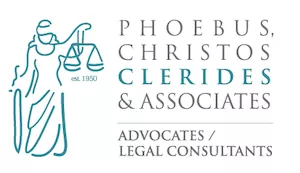- within Employment and HR topic(s)
- within Employment and HR topic(s)
- with readers working within the Property industries
- within Law Department Performance and Transport topic(s)
Our office successfully handled Application No. 550/2009 before the Industrial Disputes Court, a case that examined the duties of the Management Committee of the Provident Fund of Laiki Bank employees during 2006–2008.
The central issues were:
- whether the Fund was managed prudently,
- whether the applicant's reduced pension resulted from mismanagement, and
- whether he was entitled to compensation.
The Facts
By November 2006, over 85% of the Fund's assets had been invested in Laiki Bank's own shares. When the share price collapsed in 2008, the Fund lost more than €120 million in value — two-thirds of its assets. The applicant argued that this policy amounted to reckless concentration of risk.
The Court's Findings
The Court held that provident fund committees act as fiduciaries. They must:
- manage assets in the best interests of members,
- diversify investments to avoid excessive exposure, and
- seek professional advice where necessary.
Good faith and loyalty to the employer are not enough. Prudence requires independent judgment and sound investment practice.
In this case, the Committee allowed employer influence to override its duty to members, maintaining an 88% exposure to Laiki Bank shares. This was deemed imprudent management and in breach of both law and fiduciary principles. The applicant was awarded compensation for the financial loss suffered.
Current Legal Framework
The law at the time (Law 146(I)/2006) has since been replaced:
- first by the Occupational Retirement Provision Funds Law 208(I)/2012,
- now by the Law on the Establishment, Activities and Supervision of Institutions for Occupational Retirement Provision 10(I)/2020, which implements the EU IORP II Directive.
Together with the Supplementary Pension Rights Law 68(I)/2019 and the 2014 Regulations, the framework now provides stricter rules on governance, diversification, and supervision by the Commissioner of Occupational Retirement Provision Funds.
Key Lessons
- Fiduciary duty requires committees to act solely in the interests of members.
- Diversification of investments is essential.
- Professional advice must be sought where needed.
- Conflicts of interest must be avoided.
Conclusion
The decision confirms that provident fund committees cannot prioritise employer interests over member protection. Our office is proud to have secured recognition of these principles and compensation for our client.
For trustees, directors, and fund managers alike, the practical lesson is clear: retirement savings must be managed prudently, with independence, diversification, and a focus on members' best interests.
The content of this article is intended to provide a general guide to the subject matter. Specialist advice should be sought about your specific circumstances.


